-
STOP ATTACKING SAMUELS PUBLIC LIBRARY!Following a national extremist anti-library playbook the BOS has issued a Request for Proposal (RFP) to eliminate our Library and replace it with a privatized library that they can control. The BOS knows that the County doesn't own the assets of Samuels Public Library (books, computers, equipment), and that starting a new, privatized library from scratch will cost millions of dollars. This is a reckless plan, that will waste taxpayer dollars. In an attempt to control the library, and the freedom of Warren County residents to make their own decisions for themselves and their families, the BOS continues to smear library management and staff, and appointed people to the Warren County Library Board who answer only to the BOS, not to the community. We must protect the integrity of Samuels Public Library and its structure that has honorably and effectively served our community for over 200 years. Let Your Voice Be Heard By Signing The Petition! Tell the Warren County Board of Supervisors to STOP ATTACKING OUR LIBRARY! WITHDRAW the RFP and Fully Fund Samuels Public Library! PS: Let Your Voice Be Heard! Your Dollars Matter! Please consider Donating! A Tax Deductible Donation can be made through: https://www.fundlibraries.org/campaign/245/samuels-under-siege-fight-back-now Literary Defense Network693 of 800 Signatures
-
Georgetown High School: The Fight to Keep Books and Susan Cooper in our LibraryBooks that have been in our libraries for generations are being targeted, for seemingly no reason or at least no legal reason. The Georgetown Independent School District picked books that they have deemed inappropriate and are trying to take them from students. Mrs. Cooper spoke up for her students and in return may loose her job. We need to keep books, education, and our amazing librarian safe.1,484 of 2,000 SignaturesCreated by Brooke Thomas
-
Save Bunnvale Library in Lebanon Township, NJThis is not a political issue- Democrats and Republicans alike want libraries! Reading, and teaching our next generation to appreciate books is how we have advanced through each of the information explosions of the centuries. We cannot let this tiny red schoolhouse library fall by the wayside. If you agree, please sign and share this petition today!587 of 600 Signatures
-
Stop Pinellas County Commissioners from Taking over Palm Harbor LibraryAs residents of Pinellas County Florida, we trust the staff at the Palm Harbor Library to provide access to books, materials, displays and programming. We want our children to have access to displays and materials that will prepare them to learn about the world around them. We believe that parents should have the final decision as to what their children read and access. Pinellas County Commissioners should not Censor and Control what Palm Harbor residents access in their library. Politicians should not push their own agendas and instead should listen to the voice of the people they serve. Please sign and share this petition if you agree.1,205 of 2,000 Signatures
-
**Right to Read: Pine-Richland**The new policy gives ultimate decision-making about what books are added to our libraries & what books are removed from our libraries, to the Board majority. The Board rejected a requirement that they READ books before deciding their fate. The policy removes the former review committee comprised of district staff & community members, who cooperated to assess challenged books. The new policy also imposes long delays on getting *any* new books into students’ hands. A year & a half after a staged visit from a political agitator kicked off a set of book challenges, our School Board majority ignored the voices of educators, students, community members, and even the district solicitor, to push through a problematic library policy revision. Its origins remain unclear, though anti-plagiarism software identifies multiple sections directly copied from other districts. Members of our community need to know that student access to books is being delayed & restricted for a political agenda. Our certified librarians & educators are being sidelined. Who benefits from this policy? Please sign and share this petition if you support the right to read in Pine-Richland.367 of 400 SignaturesCreated by Rebeccah Hoffman
-
Fight 4 The First LapeerYOUR RIGHTS to freedom of expression, choice, and access to information, free of censorship, are under attack. Help us fight censorship and protect libraries from attack by keeping citizens of Lapeer informed of everything happening and actions they can take. Demand our local officials protect our freedoms. Show up and demonstrate how strongly our community supports Constitutional freedoms. We are dedicated to preserving Americans’ freedom to choose what we read. Join our anti-censorship, pro-library work and TAKE ACTION. To the Lapeer District Library Board and the Lapeer County Board of Commissioners: We, the undersigned, want our Lapeer District Library (LDL) to continue to provide patrons access to the information they need, free of censorship. To this end, we demand that 1) Trustees be appointed to the LDL Board who will uphold their oath to the Constitution and 2) that LDL Trustees make decisions regarding library policies and collections that are in keeping with library law and the 1st and 14th Amendments.538 of 600 Signatures
-
Better Funding for Our Corpus Christi Public LibrariesLast year a new Youth (Birth-17) Library Card was created and implemented that requires parent/guardian approval and allows parents/guardians to limit, observe and monitor the use of their child’s or minor’s card. A new project began in December to relocate Young Adult (YA) books from the Teen section into a section specifically designated for YA. The newly adopted Collection Development Policy changes and designates specific age ranges for books and sections from Teen ages 13-16 to Teen ages 13-17 and from YA 16+ to YA 18-25. Juvenile age remains Infancy-12 years old. More safeguards have been put in place so there is no need to spend $15,000-$25,000 or more to implement new restricted Juvenile and Teen Library Cards, especially since our public libraries are chronically underfunded and there is no pornography in the library!240 of 300 SignaturesCreated by Julie Rogers
-
Stop Forcing BookLooks on St. Francis Area Schools!The St. Francis Area Schools Board of Education must end its mandate that the library use BookLooks.org, an anonymous website designed to target books with diverse viewpoints. Parents, students, and teachers deserve to have materials on the shelves that have been transparently vetted and reviewed by credible resources and publications, not shady websites with thinly-veiled political goals. Library collection policies should require that professional librarians use credible review sources to build strong collections materials that support the learning and growth of all students. BookLooks, by contrast, requires no credentials, is not transparent in naming reviewers, and has no editorial standards. Its anonymous members regularly rate important and valuable literary works as controversial or objectionable based on their discriminatory viewpoint. Sign the petition and tell the St. Francis Area Schools Board of Education to stop mandating the use of BookLooks in their libraries!2,491 of 3,000 Signatures
-
Don’t Censor Research Databases in UtahIf HB473 passes it will lead to more widespread censorship in our schools, the possible cancellation of contracts for vendors of research databases, and it will leave Utah's students without high quality reliable resources to support their academic success. RESEARCH DATABASES ARE SAFE - MUCH SAFER THAN THE OPEN WEB The bill is being advanced on the false premise that curated, grade-level appropriate databases are not safe for students. This was proven untrue in 2018, when allegations were brought before the Utah Education Network (UEN), and they were unable to replicate any problematic results. UEN continued to monitor and report on appropriate use of research databases by students from 2018-2023, issuing 28 separate reports. WE HAVE STATE AND FEDERAL LAWS ALREADY IN PLACE TO THAT ADDRESS DATABASE SAFETY Students are protected by the Children's Internet Protection Act (CIPA), a federal law that requires schools to block anything that meets the legal definition of “harmful to minors”. Likewise, in 2021, Utah passed HB38 School Technology Amendments which requires digital resources used by students to have safety policies and technology protection measures that prohibit and prevent the sending, receiving, viewing, or downloading obscene or pornographic material. Please sign this petition and then send an email to your state senator (look up your legislator here) asking them not to pass unnecessary regulations that will harm our students, and create another tangled bureaucracy. For key points, see FAQ on HB473501 of 600 SignaturesCreated by Let Utah Read

-
Warren County: Say No to Anonymous Unvetted ReviewsThe Warren County Library Commission must end its promotion of BookLooks.org, an anonymous website designed to target books with diverse viewpoints, and any sites like it. Parents deserve credible resources from trained professionals, not unvetted sources. Endorsing BookLooks and similar websites compromises our library's integrity and parents' right to reliable information about books for their children. Our libraries already provide credible reviews through databases like NoveList and resources like Kirkus Reviews. Sites like BookLooks require no professional credentials, have no named reviewers, and follow no editorial standard. Its anonymous members routinely flag important literary works, especially those covering topics of sexuality, race, religion, or history, as controversial or objectionable. At multiple public meetings, dozens of community members objected to BookLooks and similar sites, but the Library Commission ignored concerned taxpayers and pushed forward despite overwhelming opposition. Sign this petition if you believe Warren County Public Libraries should remove BookLooks.org from its list of endorsed resources for patrons and recommend only vetted, transparent book review websites.350 of 400 SignaturesCreated by Sandy Roberts

-
Save GUHSD LibrariansOn Thursday, February 27th, despite full support of the greater community and everyone of the 600+ in the room, the Grossmont Union High School District (GUHSD) School Board was tone deaf to the pleas of our students, ignored them, talked over them, and voted to eliminate ALL Teacher Librarians. Their baseless justifications are for budgetary reasons, but see the facts for yourself at Grossmont Education Association. Impacted sites include: Grossmont, El Cajon Valley, Mount Miguel, El Capitan, Granite Hills, Monte Vista, Santana, Valhalla, and West Hills. Teacher Librarians provide essential services to students and staff that are irreplaceable. Cutting these positions will hurt our students, the quality of their learning experiences, and the thriving communities that our properly staffed school libraries support. We urge our school board members to genuinely listen to their constituents and reverse their cuts to Teacher Librarian positions. Sign and share this petition now to protect our librarians and ensure students continue to receive the resources and support they need!3,785 of 4,000 Signatures
-
Support reading freedom in New Mexico!We support reading freedom in New Mexico. We oppose book bans. Everyone deserves to share their culture through books. Freedom of speech includes the freedom to read. Book bans limit reading choice by removing or hiding books. A few people shouldn't decide what everyone else can read. Book bans are often prejudiced too. Schools and libraries are for learning. Our world is both great and difficult. We can all learn so much about it through the safety of the pages of a book.115 of 200 SignaturesCreated by Freedom to Read New Mexico
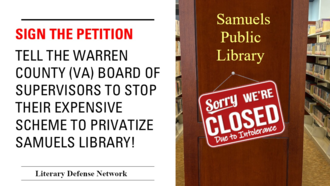
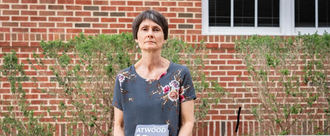

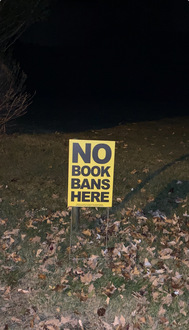
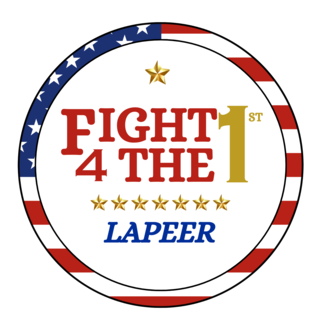
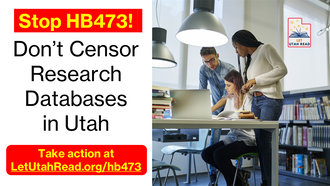
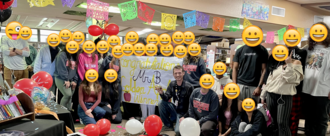
.jpg)